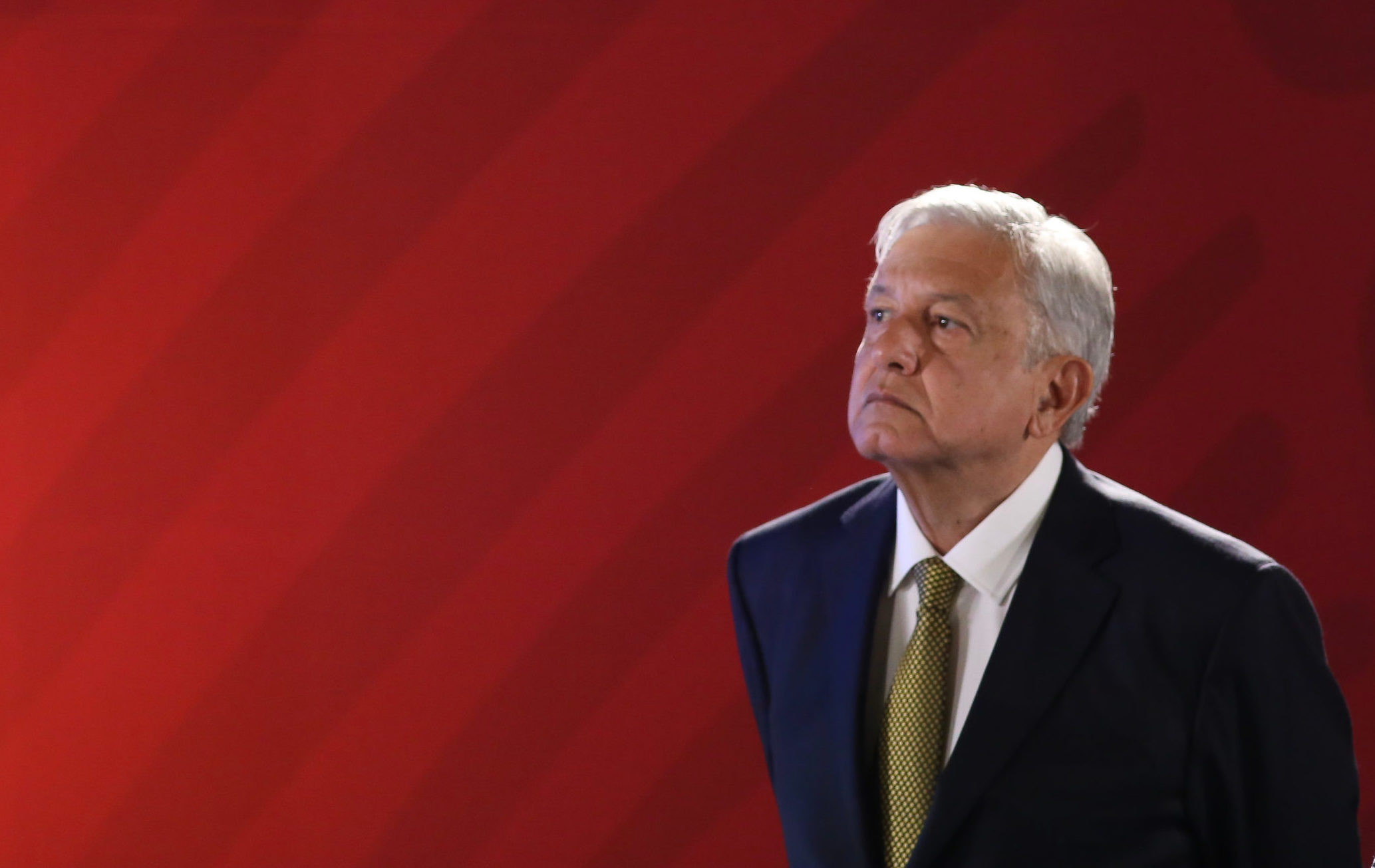Mexico’s AMLO Will Control the Cartels If We Let Him
Internal dynamics, both political and economic, will determine policy toward the cartels south of the border.

Andres Manuel Lopez Obrador is back in the American news. At his March 22 daily news briefing, the populist Mexican president declared that he was not interested in fighting the cartels on behalf of the United States.
“We are not going to act as policemen for any foreign government. Mexico First. Our home comes first,” he said. He added that Mexico would help fight the cartels on “humanitarian” grounds: “Of course we are going to cooperate in fighting drugs, above all because it has become a very sensitive, very sad humanitarian issue, because a lot of young people are dying in the United States because of fentanyl.”
He followed these inflammatory statements with a contentious Sunday interview on the CBS longform staple 60 Minutes. “You know why we don’t have the drug consumption that you have in the United States? Because we have customs, traditions, and we don’t have the problem of the disintegration of the family,” he said, insisting that the cartels pose problems mostly for Americans.
Let us lay aside the recent press investigations that have found evidence that AMLO’s rise to the presidency was backed by the cartels. (What a surprise! The man whose crime policy was “hugs not bullets” supported by organized crime—who would have thought!) The question: Could AMLO do anything about the cartels, even if he wanted to?
Mexican law enforcement is inefficient at best and corrupt at worst. Dissatisfaction with the police and the courts, and their inability to monopolize force, fuel Mexico’s largely undiscussed lynching problem, which, as we emphasized when writing about it last year, is concentrated not in the northern wastes but in the most central and populous parts of the country.
The Mexican Army and Marines have had better success against the cartels, due to their relatively lower penetration by corruption and organized crime. (“Better” is not, however, “invincible”—the cartels have shown themselves able to hold their own in the field on at least one occasion.) The difficulty is that sweeping military operations tend to give short shrift to due process and are, by their nature, volatile and dangerous; this gives an opening for human rights NGOs, in some cases funded by and coordinating with the cartels themselves, to kick up a ruckus at such operations with the support of uncritical media in the U.S. (The same sort of hand-wringing accompanied Nayib Bukele’s mass arrests in El Salvador.) This threatens to make life difficult for the politicians who support these measures.
And there isn’t much motivation to stomach those kinds of difficulties. AMLO, populist though he may be, is speaking for the Mexican political elite when he says the cartels are a problem for Yanqui. The northern provinces are simply too remote from the capital for the good and great of Mexico DF to care that much—think of the attitude of well-off New Yorkers or Washingtonians toward disasters in Kansas or Oklahoma. So, while the answer to our question is probably yes, AMLO could do something about the cartels, he has little incentive to do so.
Subscribe Today
Get daily emails in your inbox
American efforts to bring the Mexicans to heel on crime and border control issues have mostly been pushing on string. Our earlier efforts to work directly with Mexican law enforcement, modeled on interventions in Colombia, have proved catastrophically expensive and have left the cartels as strong as ever. (Indeed, arguably stronger, as our reform-and-uplift efforts in the Mexican justice system destroyed the traditional networks of corruption, which, unappealing as they were to American eyes, bought a certain amount of restraint from organized crime.) Mexico has been a weak state from its inception, and no matter how hard the U.S. tries, that isn’t going to change overnight. Nor does it make much sense, from the theoretical perspective of sovereignty, for American law enforcement to be performing operations in Mexico directly.
Hence, American policy toward Mexico should focus on realigning incentives rather than getting involved directly (although force is always the backstop in international relations and must not be categorically excluded). Happily, some of AMLO’s initiatives, which will presumably be continued by a PRI successor, fit nicely with such realignment. Counterintuitively, the recent program of renationalizations is the most promising cornerstone. The increased state revenues will increase state capacity, a chronic problem for the Mexican federal government, and it will encourage Mexico to take security concerns more seriously in relatively far-flung physical locales; there is precedent for the Army to serve as the security forces at sites operated by Pemex, the state-owned oil company. The nationalization of the country’s lithium reserves, which are concentrated in cartel territory, will serve as a particularly helpful move. (This has the added benefit of doing down the Chinese state-backed company that has a controlling interest in Mexico’s lithium.)
The U.S. has historically pressured Mexico toward a more open economy, which benefits American investors and importers. (This is in large part how Mexico has grown to be the States’ biggest trading partner.) Yet, in a choice between easing capital investment and national security, the latter must always have pride of place. A pragmatic-minded president—a Trump, perhaps—would see the benefits of getting out of AMLO’s way.